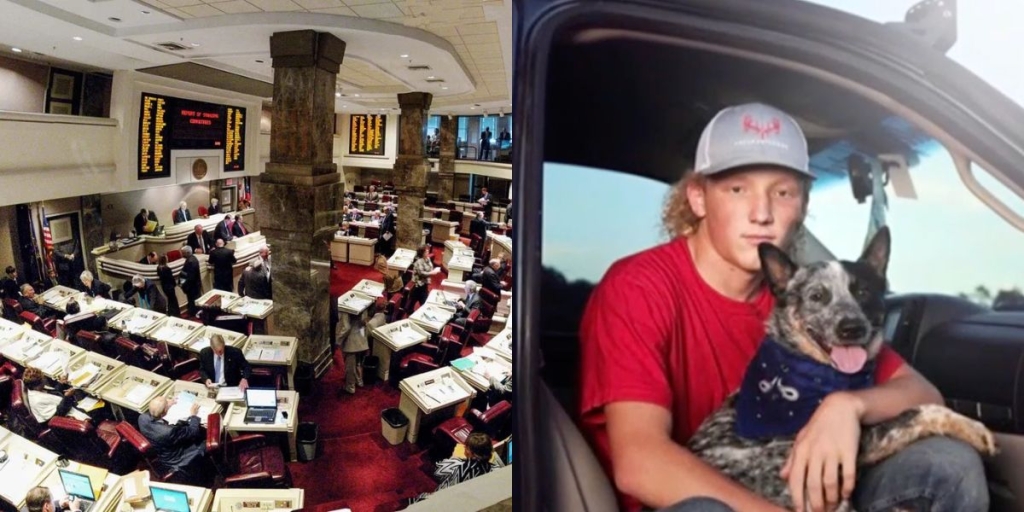The Retirement Systems of Alabama (RSA) sent a letter to members of the Alabama Senate Banking and Insurance Committee opposing two pieces of legislation awaiting a vote this week related to pharmacy benefit managers and the sustainability of independent pharmacies across the state.
SB93 and SB99 are expected to be debated by committee members this Wednesday after a public hearing last week welcomed testimony from advocates from independent pharmacies and groups opposed.
This week, Senators will debate and likely vote on the measures.
RELATED: Debate over independent pharmacy closures, costs intensifies at public hearing
In the letter, RSA raised concerns about the financial impact of both bills on the Public Education Employees’ Health Insurance Plan (PEEHIP), which provides health coverage to approximately 350,000 active and retired education employees and their dependents.
The letter, signed by Jo Moore, Deputy Director for Administration, and Neah Scott, Legislative Counsel, warns that the proposed changes to PBM regulations could significantly increase prescription drug costs for the state’s educator health plan.
“Both SB93 and SB99 mandate a change in how PEEHIP must reimburse pharmacies. SB93 requires that PEEHIP reimburse pharmacies at the average acquisition cost, which is defined in the bill as the amount compiled by Alabama Medicaid as the average acquisition cost for each drug, plus the dispensing fee set by Alabama Medicaid, currently at $10.64,” RSA wrote.
“SB99 requires that PEEHIP reimburse pharmacies at the national average drug acquisition cost, which is defined as the average acquisition cost as determined by the Centers for Medicare & Medicaid Services (CMS), plus a dispensing fee of 2% of that cost or $25, whichever is less.”
PEEHIP, which currently partners with Express Scripts to manage its prescription drug benefits, argued in the letter that its existing PBM arrangement delivers critical cost savings.
The letter notes that in fiscal year 2024, Express Scripts provided PEEHIP with over $751 million in rebates and discounts.
Under the current model, Express Scripts reimburses pharmacies at the same rate it charges PEEHIP for its non-Medicare population and passes 100% of rebates directly back to the plan.
“However, many drugs do not have an average acquisition cost available. In these instances, the bills require reimbursement at wholesale acquisition cost (WAC), which is significantly higher than the cost PEEHIP is paying for these drugs today.”
Supporters of SB93 and SB99, including independent pharmacists and their trade associations, argue that the current PBM model disproportionately harms small pharmacies while favoring large chains and mail-order services.
Independent pharmacists testified last week that reimbursement rates negotiated by PBMs are driving them out of business.
SB93, sponsored by Jones (R-Centre) and eight other lawmakers, would prohibit PBMs from reimbursing pharmacies less than their actual acquisition costs and ban hidden fees related to claims processing and network participation.
SB99, sponsored by Stutts (R-Tuscumbia) and backed by a larger group of 21 senators, takes a tougher stance: It requires PBMs to reimburse pharmacies based on the National Average Drug Acquisition Cost (NADC) plus a mandated dispensing fee.
RSA argues there is a broader challenge of balancing sustainability for state health plans with efforts to assist independent pharmacies. The letter referenced State Rep. Phillip Rigsby’s (R-Monrovia) bill, HB238 from the 2024 session, which at that time RSA found would have reduced reimbursements for independent pharmacies while increasing payments to large pharmacy chains.
“Due to the wide range of changes within the bills that would impact the economics of many points within the supply chain, it is difficult to measure the final net impact to our plan and to our members without having significantly more time to properly study the newly redefined cost and resulting shifting of dollars,” the letter reads.
“Our preliminary estimated cost increases are $31 million for SB93 and $36 million for SB99; however, these do not include any other potential cost increases such as the loss of current contract financial guarantees from the PBM to the plan, which are highly valuable.
“For these reasons, PEEHIP is opposed to SB93 and SB99.”
Grayson Everett is the editor in chief of Yellowhammer News. You can follow him on X @Grayson270.













